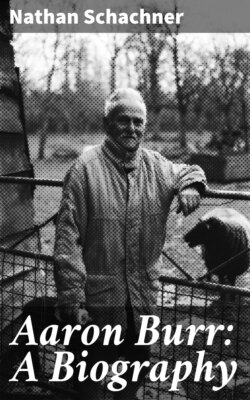Читать книгу Aaron Burr: A Biography - Nathan Schachner - Страница 34
На сайте Литреса книга снята с продажи.
7. The War Horse Snuffs Battle
ОглавлениеTable of Contents
Colonel Burr may have thought he was through with battles and alarms after this, but the gods of war ordered differently. He sought peace and the restoration of a shattered constitution with friends at New Haven. The war pursued him. For, on July 5, 1779, a fleet of some forty sail under Sir George Collyer anchored off the Connecticut shore, preparatory to an attack on New Haven. Governor Tryon, that vindictive ex-Governor of the former province of New York, landed with 3,000 troops. The patriot inhabitants flew to arms; the Tories rejoiced, armed themselves and went forth to join the invaders. East Haven was plundered and set on fire, and the scattered militia driven back on the main town. “Near 2 M. Stone,” reports the Rev. Ezra Stiles, of Yale, “Dr. Dagget Professor of Divinity was captivated. He discharged his piece and then submitted as Prisoner—they after this pierced and beat him with Bayonets & otherwise abused him, so that his Life was in danger for a month after.”[120]
Burr heard the uproar and the sound of guns. Though he was confined to bed, he arose at once and volunteered to take command of the militia. But they were fleeing in a disordered rout. Then he heard that the students of Yale were hurriedly organizing in the College yard. He threw himself on a horse and galloped to the meeting-place, followed by some few of the militia who had rallied after him. The students enthusiastically placed themselves under the command of this veteran, scarcely older than themselves. More of the militia, shamefaced, joined.
The British were trying to force Darby Bridge, in order to gain lodgment in the town itself. Burr threw his force upon their left flank, and harried their march.[121] The enemy was compelled to retreat, but returned with artillery and reinforcements. Burr’s little band was greatly outnumbered, and retired gradually, in good order. New Haven was captured, plundered, and burnt.
This, however, was the final act of the Revolutionary drama as far as Burr was concerned. The war went on, with varying fortunes, until the ultimate triumph and independence. The youthful veteran—he was twenty-three now—gradually regained his health by a careful regimen and a rigorous diet. On his retirement from the service, he was universally respected and acknowledged to be a brave, gallant, intelligent officer. The men in the ranks worshiped him and his brother officers testified to his worth. There was no dissenting voice, not even from those who had secretly withheld too rapid advancement. His thoughts now turned to civilian affairs—to his future career, and to a certain lady of Paramus.
